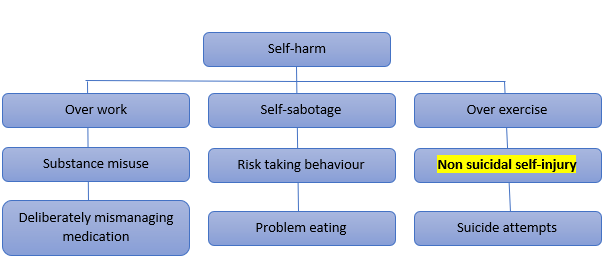
Our Conversation Series
Often we don’t know how to start difficult conversations with someone who is struggling, however it is important that we try to learn, understand, connect and support people who may be going through mental health problems or a crisis situation.
Research suggests that open and honest communication about mental health supports steps towards suicide prevention, because these important conversations have the power to increase awareness and understanding, remind people they are not alone and help break the stigma which can be a barrier to those seeking help.
In our conversation series, we offer 4-hour workshops on how to have those difficult conversations. The Mental Health First Aid Conversation Series courses teach you how to identify, approach and support someone who is experiencing a crisis situation (suicidal thoughts & behaviour, non-suicidal self-injury or gambling) using a practical, evidence-based Action Plan. You will also have the opportunity to practice your new skills in a safe environment. These courses are based on guidelines developed through the expert consensus of people with lived experience of mental health problems and professionals.
Information about Suicide
The World Health Organisation (WHO) statistics show that suicide accounts for 1.3% of all deaths in the world, making it the 17th leading cause of death in the year 2019. More specifically, every minute of every hour a man dies by suicide somewhere in the world. In 2019, men died by suicide 3 times more than woman.
When talking about suicide, it is important to pay attention to the language that we use. In the past, we’ve used negative or inappropriate terms, however we should avoid language which is judgemental or alienates people. People who are vulnerable to suicide, or bereaved by suicide, can be impacted by language.
If you are worried about somebody, don’t ever ignore your suspicions as it is important to connect and check in with them. Starting a conversation with someone about suicide will be a difficult & emotional situation for you as a person, but it is very important that you reach out, show empathy & ask directly. The person will have tried to problem solve the emotional distress that they are experiencing, by asking them directly you will connect with them & open up different ways to alleviate the distress that they are experiencing. Empathise with the distress they are experiencing & work together to keep them safe & connect them with an appropriate professional.
What the Conversation about suicide course offers during the 4-hr workshop
- How to identify warning signs for suicide
- How to confidently support a person in crisis
- How to help the person stay safe
- How to connect someone to appropriate professional help
Information about Non-suicidal self-injury
You might have heard about self harm which is an umbrella term, under which non-suicidal self-injury is one area that a person may engage in to cause harm to self. The diagram below shows some of the other forms that a person may engage in to cause harm to themselves.

In our Conversation series workshop we focus on “non suicidal self-injury (NSSI)”. Some of the common methods of NSSI include cutting, scratching, deliberately hitting their body on hard surfaces and burning.
The main reasons why someone might engage in NSSI are to regulate their emotions or punish themselves. It is important to empathise with the emotional distress that the person is experiencing, and assist them to reduce the pressure or reasons which are leading to them engaging in self-injury in the first place.
What the Conversation about NSSI course offers during the 4-hr workshop
- Why people engage in self-injury
- How to talk to someone about their self-injury
- How to help the person stay safe
- How to connect someone to appropriate professional help
- How to assess for suicidal thoughts and behaviours
Information about Gambling
A recent UK documentary called “football gambling addiction” highlights that the average Premier League football match includes over 700 gambling advertisements that are visible during the 90 minute football match. English football matches reach a vast global audience, therefore gambling companies invest large amounts of money to advertise their services, a percentage of the adverts are in Asian languages to bypass gambling laws in countries such as China and Thailand where gambling is banned.
There are many signs and behaviours that indicate when normal enjoyment of gambling changes to a serious problem. These signs could be financial, health related ( mental & physical) &/or social (problems at home and the workplace).Signs could include to escape problems, gambling in work time and stealing from family or friends to fund gambling.
There are a number of factors that can make a person more likely to experience gambling harm than others such as having an early big win, having financial problems and feeling bored or lonely.
What the Conversation about gambling course offers during the 4-hr workshop
- How to approach someone you are concerned about
- Risk factors, signs, symptoms & motivations which may underpin gambling harm
- How relapse might affect someone experiencing gambling harm
- How to manage your own self care when helping someone experiencing gambling harm
To learn more about our courses or any questions, please email [email protected].

